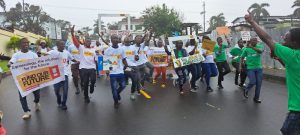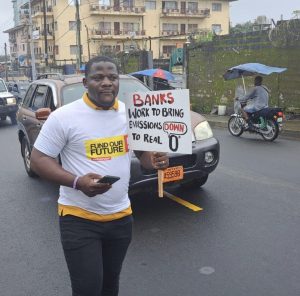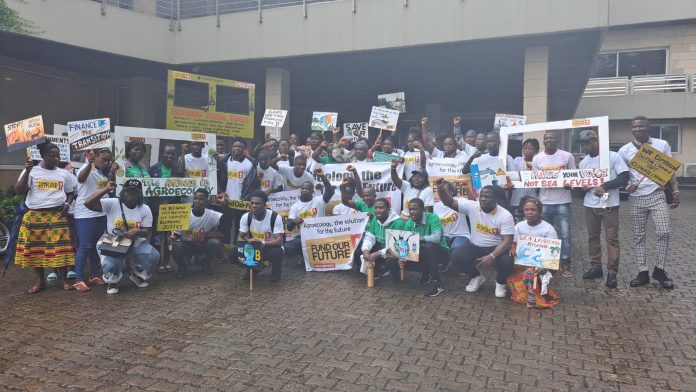In an effort to address the issue of climate change with a focus on equity and social justice, the international nonprofit organization, ActionAid Liberia (AAL), on Thursday, September 28, 2023 launched its “National Climate Justice” campaign.
The initiative aims at amplifying the voices of marginalized communities and push for equitable climate action nationwide by local and state actors.
Giving an overview of the event, ActionAid Country Director, Elizabeth Johnson expressed deep concern over the escalating global impact of climate change, which has resulted in the loss of countless lives, exacerbated poverty, and imposed financial burdens on economies worldwide, with a particular impact on the Global South.

In Liberia, according to Madam Johnson, the extractive industries, including Mining and Forestry, are the primary drivers of Environmental degradation, despite contributing more than 54% to the national GDP.
Quoting the 13th report of the Liberia Extractive Industries Transparency Initiative (LEITI), the forest sector produced a staggering 87,996.7 m3 of round logs, with financing from five major companies, accounting for a substantial 63% of round log production in Liberia (source: Liberia EITI 13th Report – FY 2019 – 2020.pdf).
The logging activities carried out by major companies have led to severe biodiversity loss and deforestation, that’s according to the AAL Country Director.
“Mineral mining in Liberia has disrupted communities’ livelihoods, polluted rivers and streams, degraded land, created toxic deposits in open pits, and forced migrations and displacements. Major players like Bea Mountain, Arcelor Mittal, and MNG Gold are investing millions in this sector, often with inadequate regulation”, Madam Johnson remarked.
According to her, the nation’s fertile lands are predominantly dominated by monoculture plantations like rubber, cocoa, and palm production, undermining thousands of smallholder farmers and their sustainable agroecological systems, which have the potential to both feed the nation and mitigate climate change.
The human rights and social justice organization notes, “poorly regulated activities significantly contribute to the ongoing climate crisis in Liberia resulting in erratic rainfalls, flooding, coastal erosion, windstorms, epidemics, food insecurity, and more.
Elizebeth Johnson used the occasion to call for adequate financing, including the need for scaled-up funding to achieve universal energy access.
“In this critical era of climate change, it is imperative that public funds are mobilized and directed towards renewable energy and agroecology to facilitate equitable transitions. ActionAid Liberia is calling out this absurd flow of money towards the climate crisis, and demanding with young people, women-led organizations and allies for increased public funds for agroecology and renewable energy”, the group through its head, recommended.
While acknowledging efforts of national government including investments in the Global Environmental Facility Fund to preserve Liberia’s coastal natural capital and the ambitious nationally determined contribution plan to reduce greenhouse gas emissions, Miss Johnson said, there is a pressing need for more substantial funding for agroecology and renewable energy.”
The launch of the project witnessed commitment from the Environmental Protection Agency (EPA) of Liberia, and other partners in ensuring a safe environment for all.



